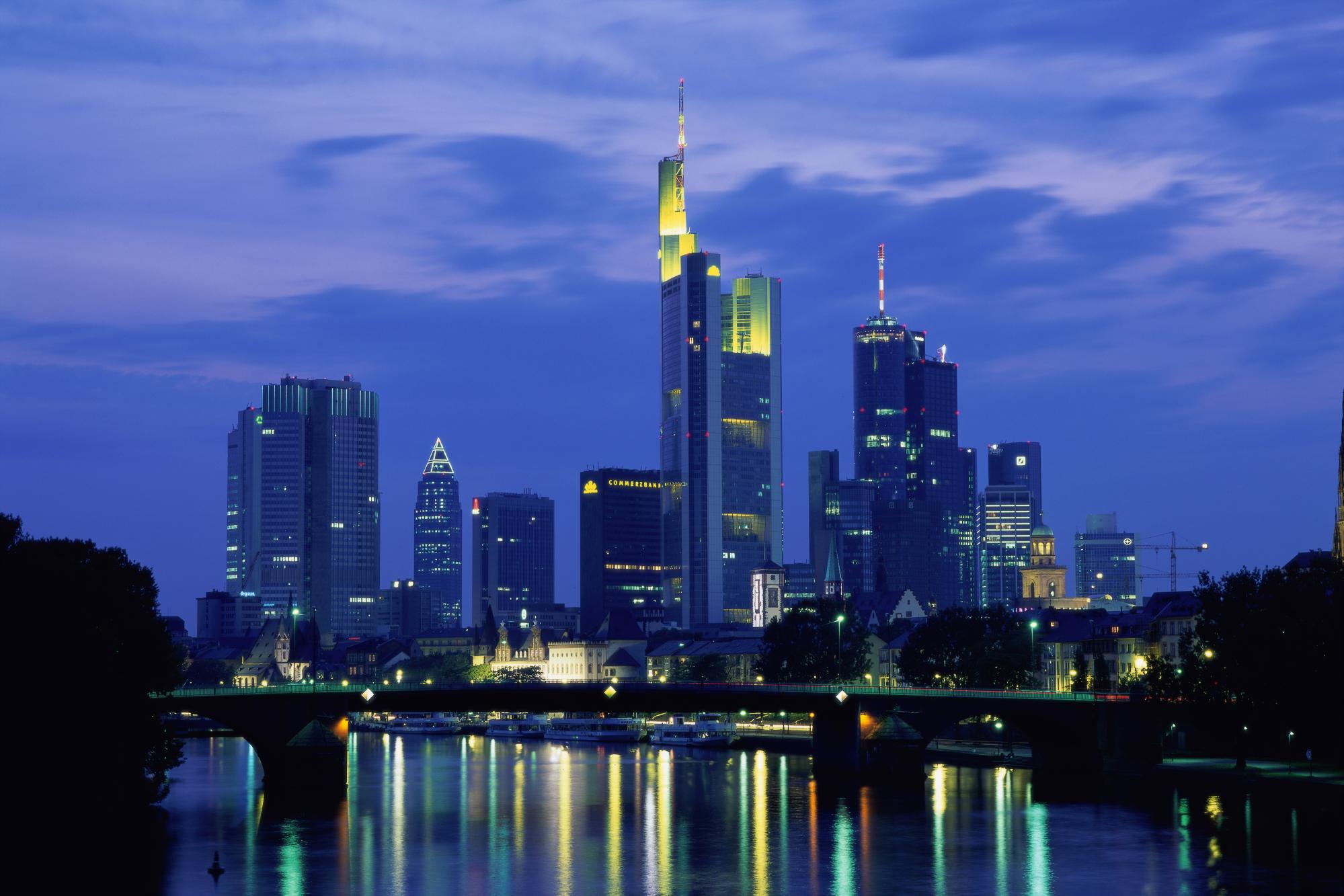

Frankfurt am Main is the largest city in the German state of Hesse and the fifth-largest city in Germany, with a 2007 population of 667,598. The urban area had an estimated population of 2.26 million in 2001.[1] The city is at the centre of the larger Frankfurt Rhine Main Area which has a population of 5.3 million and is Germany's second largest metropolitan area.

Situated on the River Main, Frankfurt is the financial and transportation centre of Germany and one of the two largest financial centres in continental Europe, the other being Paris. It is the place of residence of the European Central Bank, the German Federal Bank, the Frankfurt Stock Exchange and the Frankfurt Trade Fair. Frankfurt International Airport is one of the world's busiest airports, Frankfurt Central Station is one of the largest terminal stations in Europe, and the Frankfurter Kreuz (Autobahn interchange) is the most heavily used interchange in Europe. Frankfurt is the only German city listed as one of ten Alpha world cities.[2]
Among English speakers the city is commonly known simply as "Frankfurt", though Germans occasionally call it by its full name when it is necessary to distinguish it from the other (significantly smaller) Frankfurt in the German state of Brandenburg, known as Frankfurt (Oder). It was once called Frankfort-on-the-Main in English, a translation of Frankfurt am Main.
History
Main article: History of Frankfurt am Main
In the area of the Römer, Roman settlements were established, probably
in the 1st century; some artifacts from that era are found even to this day.
The city district Bonames has a name probably dating back to Roman times—it
is thought to be derived from bona me(n)sa. Nida (Heddernheim) was also a
Roman civitas capital.
The name of Frankfurt on Main is derived from the Franconofurd of the Germanic tribe of the Franks; Furt (cf. English ford) where the river was shallow enough to be crossed by wading. Alemanni and Franks lived there and by 794 Charlemagne presided over an imperial assembly and church synod, at which Franconofurd (-furt -vurd) was first mentioned.
Frankfurt was one of the most important cities in the Holy Roman Empire. From 855 the German kings and emperors were elected in Frankfurt and crowned in Aachen. From 1562 the kings/emperors were also crowned in Frankfurt, Maximilian II being the first. This tradition ended in 1792, when Franz II was elected. His coronation was deliberately held on Bastille Day, 14 July, the anniversary of the storming of the Bastille. The elections and coronations took place in St. Bartholomäus cathedral, known as the Kaiserdom (en: Emperor's Cathedral), or in its predecessors.
The Frankfurter Messe (Frankfurt Trade Fair) was first mentioned in 1150. In 1240, Emperor Friedrich II granted an Imperial privilege to its visitors, meaning they would be protected by the Empire. Book trade fairs have been held in Frankfurt since 1478, the Frankfurter Buchmesse is still the most important in Germany and, some might say, the world.
In 1372 Frankfurt became a Reichsstadt (en:Imperial city), i.e. directly subordinate to the Holy Roman Emperor and not to a regional ruler or a local nobleman.During the 1970s, the city created one of Europe's most efficient underground transportation systems. That system includes a light rail system (S-Bahn) capable of reaching outlying communities as well as the city centre, and a deep underground rail system with smaller coaches (U-Bahn) also capable of travelling above ground on street rails.
Since the postwar period Frankfurt has emerged once again as the financial and transportation centre of Germany.